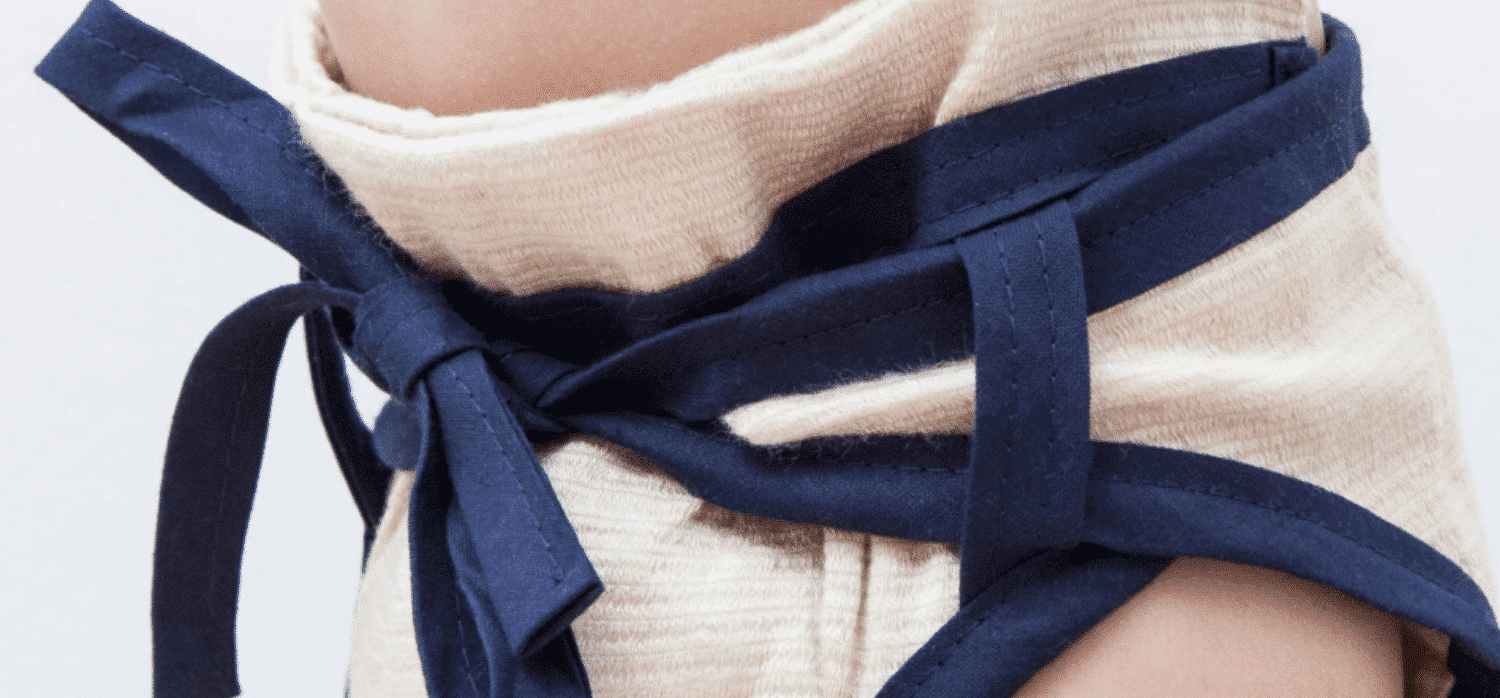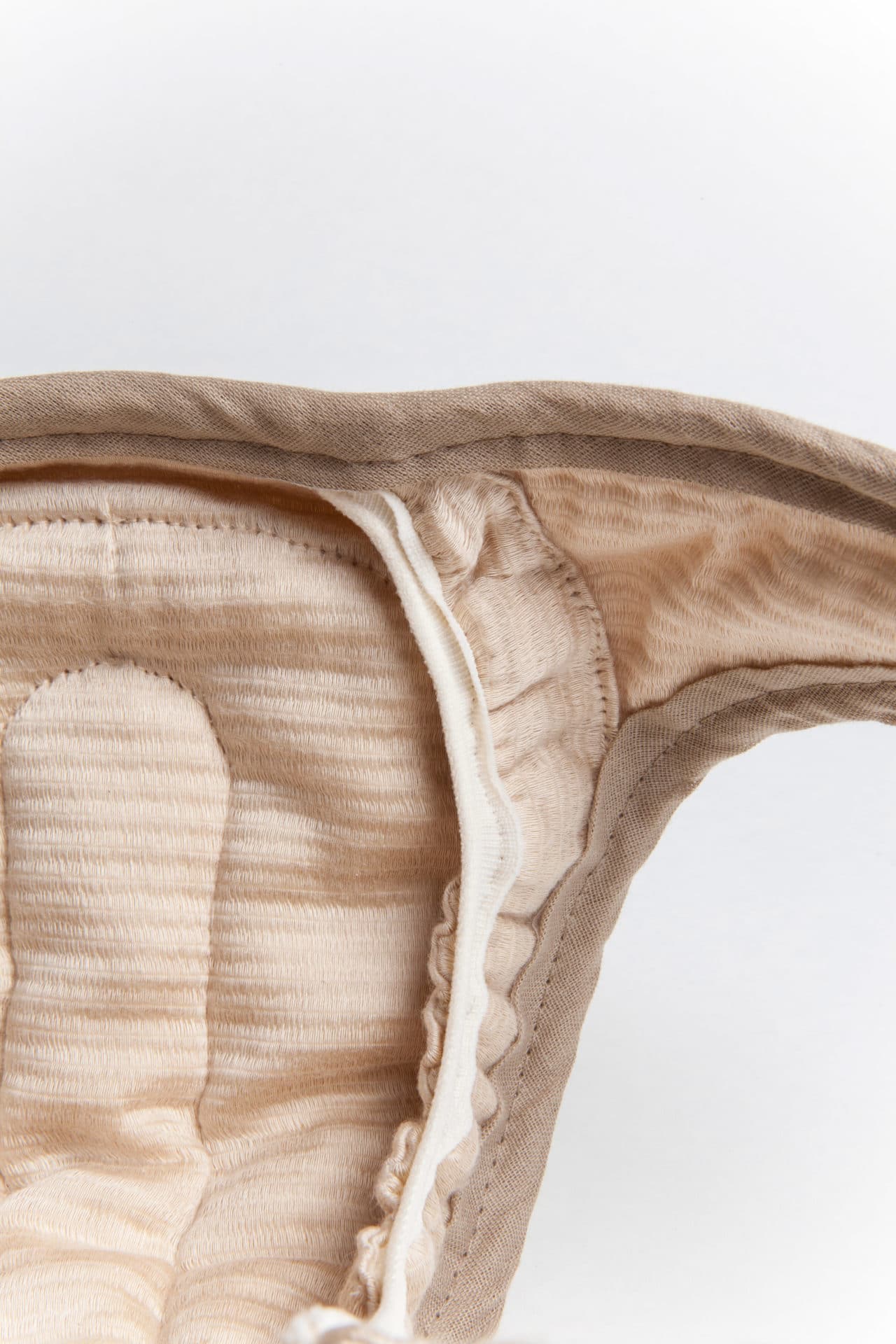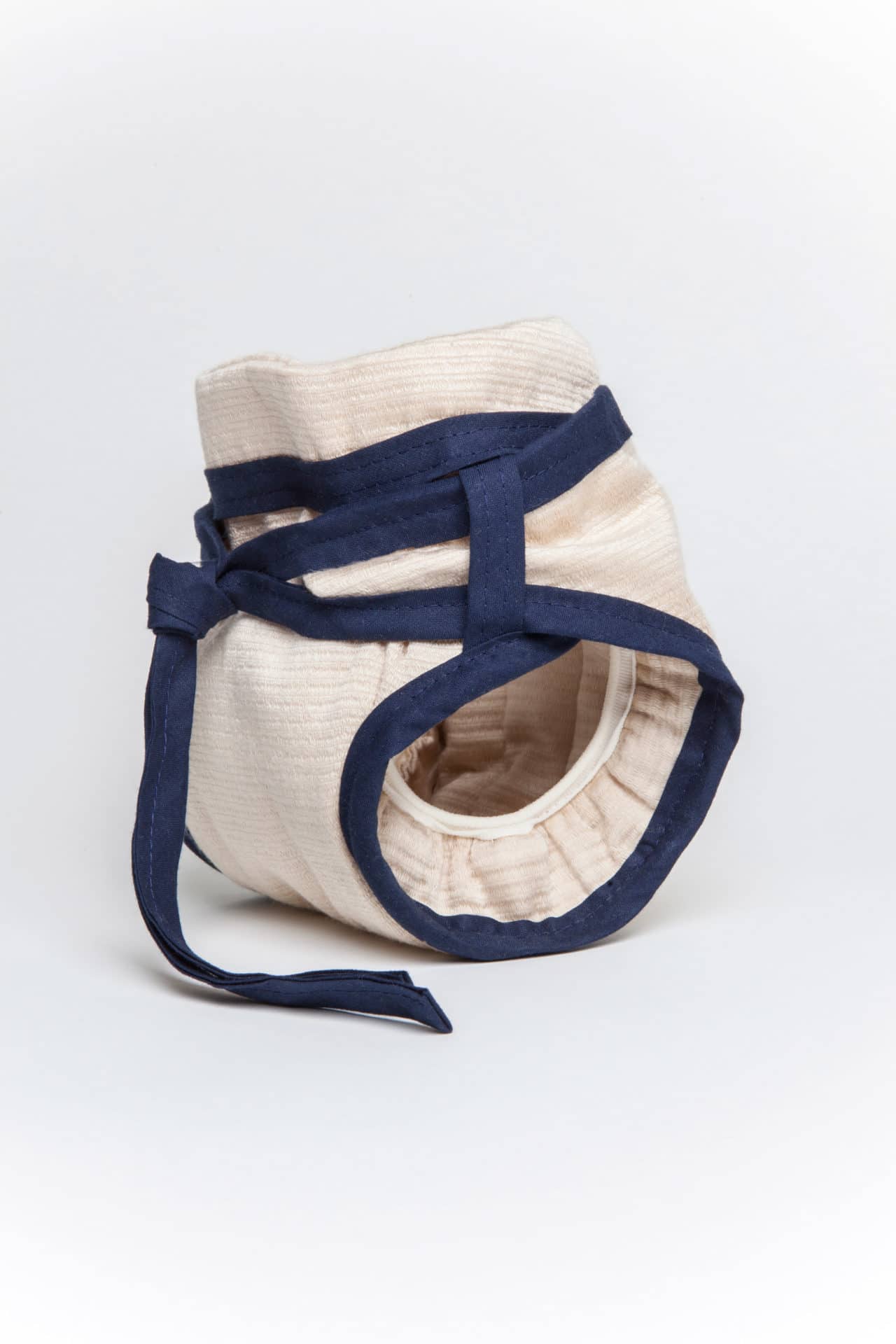Germany (Berlin)
Now your baby can look like an eco-friendly sumo wrestler, but, more importantly, provide an alternative to disposable diapers. 17 million of them are binned every day in the European Union alone.
Disposable diapers are the third largest consumer item in landfills, and represent 30% of non-biodegradable waste (after newspapers and beverage and food containers). That’s because babies do a lot of pooping. The average baby goes through 6-8 diapers a day – that’s 6,500–10,000 diapers over the course of two years.
Disturbed by this fact, Berlin-based product and furniture designer Luisa Kahlfeldt has designed a ‘Sumo’ baby diaper that is more sustainable than other reusable cloth nappies — and for that innovation the ÉCAL graduate has won the Swiss James Dyson Award 2019.

Named after the Japanese sport, the Sumo’is the first mono-material diaper to market. It is made entirely of a fabric called SeaCell, which is essentially seaweed and eucalyptus. The textile is antibacterial and antioxidant-rich, so it is beneficial for babies’ skin.
It’s also sustainable to harvest and produce, giving it an advantage over the textiles used in most cloth nappies on the market. And since it’s fashioned in a mono-material design, it is also more easily recycled, with no need to disassemble its components. In most cloth nappies, the absorbent layers are laminated with polyester or polyurethane, so they cannot go on to be recycled. Hooks and fastenings also typically obstructs the recycling process.
The waterproofing was enabled by a partnership with Swiss textile company Schoeller, whose EcoRepel technology waterproofs fabrics without affecting their biodegradability or recyclability.
“Both the DITF (German Institutes of Textile and Fiber Research), with whom I prototyped the first batch of SeaCell fabric, and Schoeller have expressed their interest in further collaborating,” Luisa explains. “I strongly believe that this project has the potential to have a positive impact on the environment and represent a social and financial benefit for families.”
AtlasAction: Follow Luisa on Instagram for more information on how to buy them:
Project leader
Luisa Kahlfeldt, senior designer, Konstantin Grcic Design
Support the Atlas
We want the Atlas of the Future media platform and our event to be available to everybody, everywhere for free – always. Fancy helping us spread stories of hope and optimism to create a better tomorrow? For those able, we'd be grateful for any donation.
- Please support the Atlas here
- Thank you!



